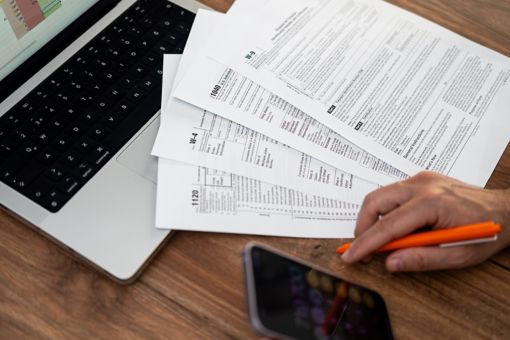Welcome to our My Tax Compass page dedicated to the latest updates and insights in the ever-evolving world of tax news. As tax regulations and laws continue to undergo frequent changes, staying informed is crucial. Keeping track of these updates across multiple sources can be time-consuming and challenging, so we've created this centralized hub, allowing you to access all the latest news and developments in one easy-to-navigate location. Our team of tax professionals carefully curates the content to ensure that you receive the most relevant and significant information, saving you valuable time and effort. Here, you will find the most up-to-date information on a wide range of topics, including corporate tax, transfer pricing, CBAM, indirect tax, R&D incentives, BEPS, accountancy, flexible rewards and much more.
In addition to providing the latest news, we also offer key takeaways from past tax-related events, allowing you to stay informed on important discussions, trends, and insights shared by industry leaders. We've also included useful links to global tax resources, giving you access to a wealth of additional information to deepen your understanding of tax regulations and practices worldwide.
Keep reading for the latest news or navigate directly to your desired topic:
Corporate tax | Indirect tax | People Services | Accountancy | Legal
Latest insights

Corporate tax

Indirect Tax

People Services

Accountancy

Legal
Explore
Connect with us
- Find office locations kpmg.findOfficeLocations
- kpmg.emailUs
- Social media @ KPMG kpmg.socialMedia
2025
- 2025 Transfer Pricing year in review
- CJEU on VAT treatment of transfer pricing adjustments
- The impacts of US Tariffs post 9 July pause
- Belgium's New Royal Decree on Structured Electronic Invoicing
- Extended Belgian DMTT-return filing deadline
- Belgium introduces domestic exemption of withholding tax on royalties
- Circular on the implementation of minimum taxation
- CUP method under the spotlight
- Changes to the Belgian Law on Minimum Taxation (Pillar Two/GloBE)
- Court of Appeal of Ghent Clarifies Boundaries of Tax Investigations and Data Requests
- Relief on royalties and factoring, setback on interest
- Constitutional Court clips the wings of the Belgian Cayman Tax 2.1
- The new capital gains tax on financial assets
- Recovery of wage tax and withholding tax on dividends, interest or royalties
- Judgment of the Court in Case C 808/23 Högkullen AB (3 July 2025)
- Navigating Belgium’s New E-Invoicing Regulations
- Favourable tax regime for copyright in the IT sector: the phoenix rises again!
- Opinion of the Advocate General in Case C-726/23 SC Arcomet Towercranes SRL (3 April 2025)
- Webinar shift work – key takeaways
- The new capital gains tax on financial assets
- Federal government approves draft law for capital gains tax
- Belgian Constitutional Court raises prejudicial question about the UTPR
- Second draft tax law approved by federal government
- Political agreement reached on introduction of capital gains tax
- The impact of US tariffs
- Belgian federal government approves draft program law
- Belgium’s proposed capital gains tax: key details and changes
- Draft program law: measures on tax procedures
- VAT and other tax measures in draft program law
- Federal government approves draft program law implementing first series of tax measures
- Belgian DMTT-return template
- 2025 Transfer Pricing audit wave
- Belgium's 2025-2029 Coalition Agreement
- VAT chain reform
- Coalition agreement of the new Belgian Federal Government
- Investment deduction
- R&D withholding tax update
- Wage withholding tax exemption for night and shift labour
- Clarification of the bis-variant: New Royal Decree 20/12/2024
2024
- Global Mobility: key updates and focus areas
- Flexible reward & mobility update
- Temporary clarity on electricity cost reimbursement
- Taxation and the Circular Economy
- Preparing for the year ahead
- Navigating EU Taxonomy
- 2024 take-aways regarding VAT in the real estate sector
- Political agreement reached on the EU’s VAT in the Digital Age Proposal
- Belgian VAT chain reform as from 2025
- Reformed investment deduction enters into force as from 2025
- Tax incentives for innovation and R&D – recent developments
- Automatic exchange of information
- 2025: The Year of Pillar Two Compliance
- Flexible compensation in 2025: challenges and opportunities
- Flemish Government Agreement on Tax Measures
- Belgian draft QDMTT-return
- Flemish Government Agreement on Tax Measures
- Investment deduction
- Updated Belgian transfer pricing forms: Substantially more to be shared as from 2025
- CJEU upholds DAC6 reporting obligations
- Notification deadline for Pillar 2/GloBE registration extended in Belgium
- GloBE registration deadline
- GloBE registration requirements in Belgium
- Belgian Law on minimum taxation amended
- Notification deadline for Pillar 2/GloBE registration extended in Belgium
- Reform of the Belgian investment deduction regime
- Bike allowance and company bikes in 2024: Important updates
- EU Public CbC Reporting Rules
- EU Green Deal and Green Customs in 2024
2023




































